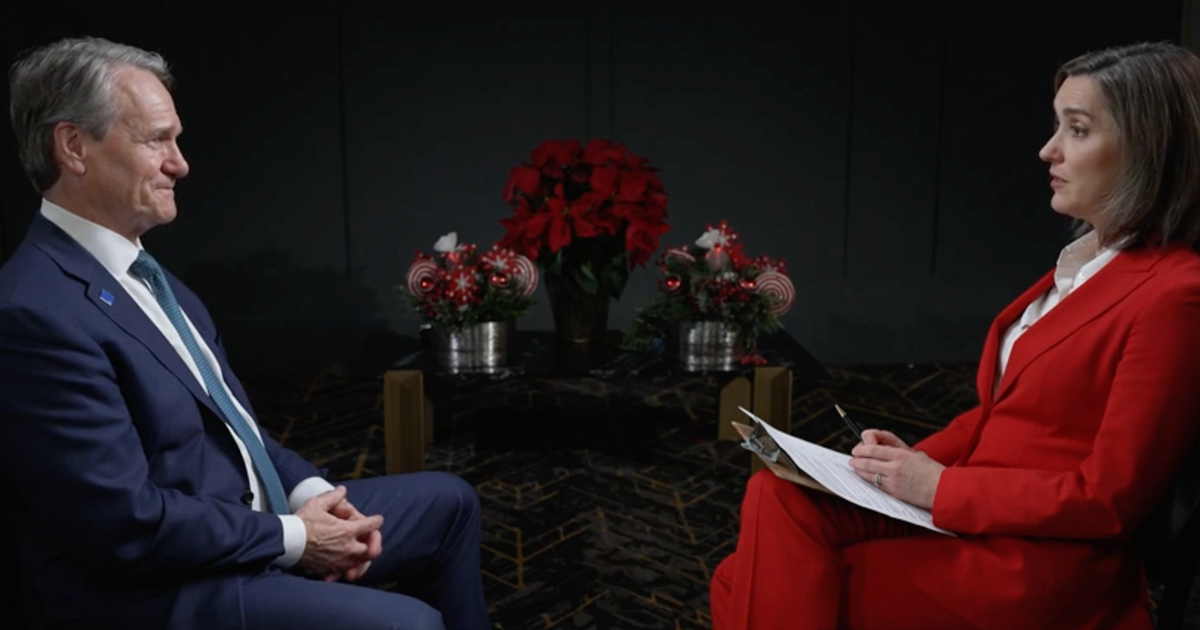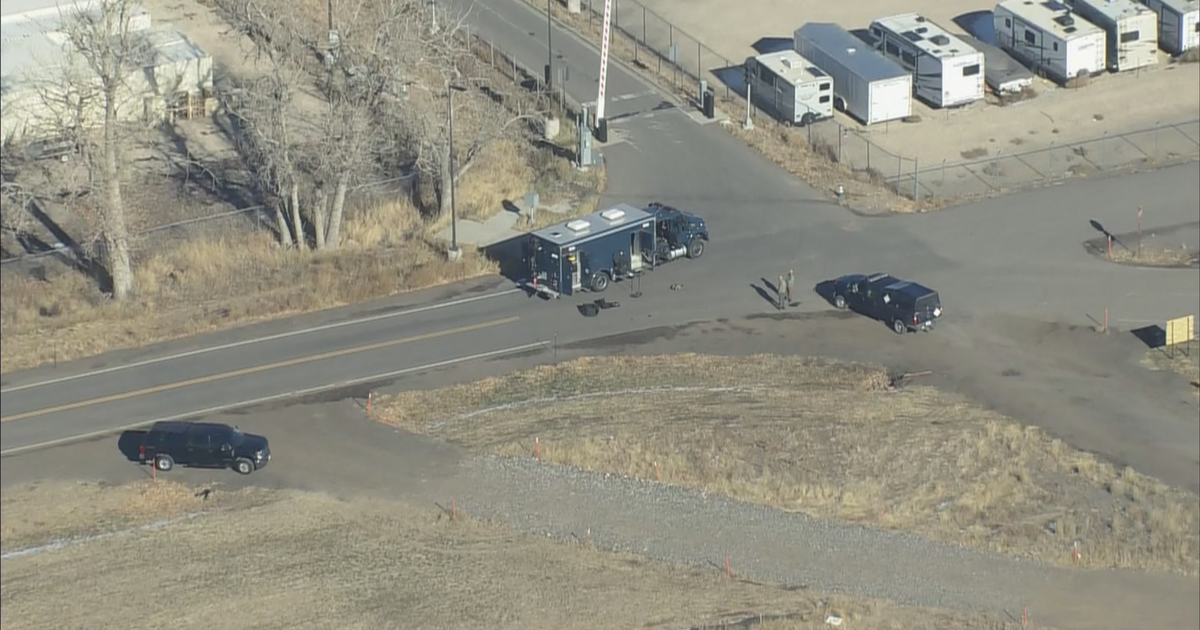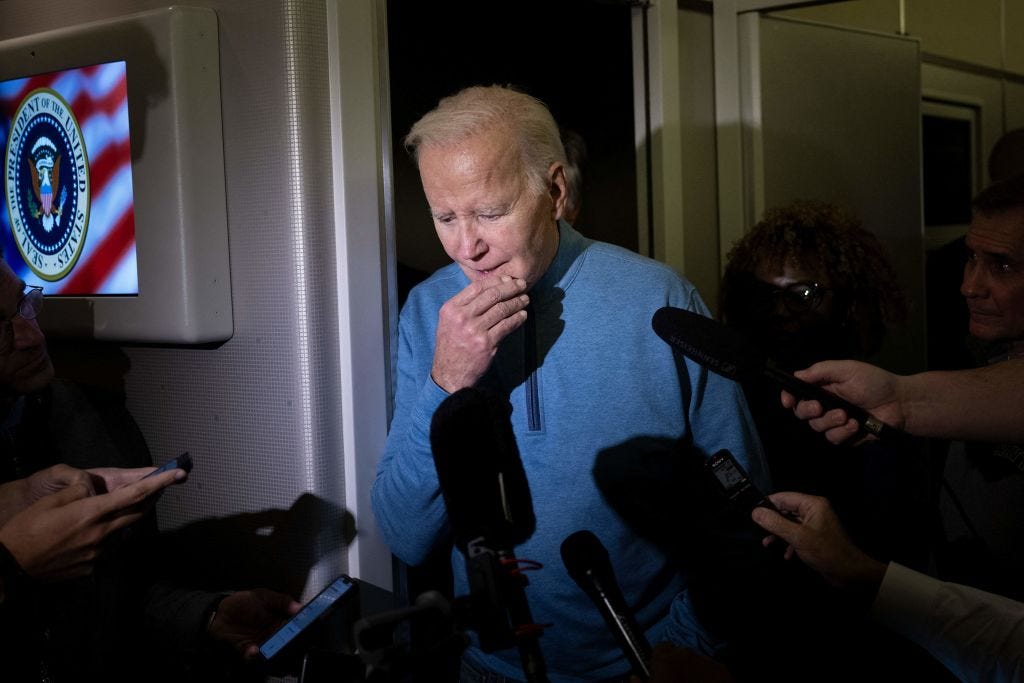Transcript: National Security Adviser Jake Sullivan on "Face the Nation," Feb. 4, 2024
The following is a transcript of an interview with National Security Adviser Jake Sullivan that aired on Feb. 4, 2024.
MARGARET BRENNAN: We're joined now by White House National Security Adviser Jake Sullivan. Jake, it's good to have you back here with us. The White House described Friday's response as a multi-tiered plan, not one and done. Is this an open ended military campaign and how are you going to define success?
NATIONAL SECURITY ADVISER JAKE SULLIVAN: Well, it's true, Margaret, that what happened on Friday was the beginning, not the end of our response, and that there will be more steps, some seen, some perhaps unseen, all in an effort to send a very clear message that when American forces are attacked, when Americans are killed as three service members, tragically were at Tower 22, we will respond and we will respond forcefully. And we will respond in a sustained way. I would not describe it as some open ended military campaign. We have a concept of how we intend to respond. I'm not going to telegraph it on the show. But we will execute that concept with the kind of professionalism that only the US military can bring to bear.
MARGARET BRENNAN: So the US officially has not assessed that Tehran directed the attack, but has Tehran done anything to rein in the militias that they fund and arm?
JAKE SULLIVAN: Well, we know that Iran is behind these militia groups, they train them, they fund them, they arm them, as your question suggests. And they do have influence with them. And I can't sit here today and tell you that Tehran has shifted its policy. What I can tell you is what the United States' approach is going to be, which is that if we continue to see threats and attacks from these militia groups, we will respond to them. And we will hold those responsible accountable.
MARGARET BRENNAN: There are reportedly civilian casualties in Iraq and in Syria as a result of these strikes. Does the US assess that any of those hit in these strikes were actually Iranian Al Quds Force personnel? Or did the fact that this was so telegraphed in advance, give those personnel time to go to ground?
JAKE SULLIVAN: Well, first of all, Margaret, on the telegraphed point, President Biden has been saying for months that he would respond to attacks, we have responded to previous attacks, and when three service members were killed, of course, Iran knew that the United States would respond. So the idea that somehow this was telegraphed, I think is a bit more of a political talking point than- than a reality. Secondly, the targets that we hit, we believe with conviction, were valid military targets. They were ammunition depots and command and control centers. They were the instruments that Iranian backed Shia militia groups were using to attack American forces. We are looking at the casualties, who precisely was killed. I don't have anything to report to you this morning publicly on that. But we will continue to make our assessments.
MARGARET BRENNAN: But no one, for example, in IRGC leadership and Iranian leadership, no one of significance was targeted?
JAKE SULLIVAN: As I said, we are continuing to assess the battle damage. And when we are prepared to share that publicly, we'll do so. I am not prepared to do that with you today.
MARGARET BRENNAN: Okay. Jake, half of US adults, according to the AP, say Israel's military campaign in Gaza has gone too far. And 31% approve of Biden's handling of the conflict. At what point is this open ended Israel conflict in Gaza, not just a political problem, but a national security one for the United States to be so closely associated with the Netanyahu government's war with the civilian casualties that we've seen to date and the starvation of women and children in Gaza?
JAKE SULLIVAN: Well, first Margaret, I'm glad you put the question in those terms. Because, you know, we don't design our policy towards Israel, or Gaza or the Middle East based on politics. We do it based on the national security interests of the United States. And we've been clear from the beginning that we believe that Israel has a right to respond to the horrific attacks of October 7, and to deal with the threat that Hamas continues to post Israel, as it asserts that it wants to conduct another October 7, and then another one, until Israel no longer exists. But we've been equally clear that we have to look out for and respond to the immense and terrible suffering of the Palestinian people. And that means pressing Israel on issues related to the humanitarian assistance that we have helped unlock and get into the Gaza Strip and there needs to be much more of it. Secretary Blinken is on his way to the region as we speak, and this will be a top priority of his when he sees the Israeli government that the needs of the Palestinian people or something that are going to be front and center in the US approach and that we want to ensure that they are getting access to life saving food, medicine, water, shelter. And we'll continue to press until that is done.
MARGARET BRENNAN: But it's still not the degree to which you are asking for. Today, Prime Minister Netanyahu said Israel will not agree to a deal that is related to the release of terrorists. His National Security Minister Ben-Gvir gave an interview to the Wall Street Journal saying he'd oppose any deal with Hamas that would end the war or free Palestinian prisoners, and said Donald Trump would be better for Israel than Joe Biden. Does Benjamin Netanyahu have control of his government? And are these right wing ministers risking blowing up a hostage deal that the United States is trying to put together?
JAKE SULLIVAN: Look, I'm gonna let the Israeli government and Israeli politicians speak for themselves, they certainly have no trouble doing so as you just related. We're only going to speak for ourselves and from our perspective, a hostage deal, that brings out the hostages, including the American hostages, that gets a sustained pause in hostilities so that life saving assistance can more easily get to the Palestinian people. This is in the national security interest of the United States. And we're going to press for it relentlessly as the President has done, including recently in calls with the leaders of Egypt and Qatar, the two countries that are our central brokers in this effort. So it is a paramount priority for us, the Israeli government can answer whether it's a paramount priority for them. And depending on that answer, they'll also have to answer to the Israeli people.
MARGARET BRENNAN: Well, do I understand you saying there then that Israel's government has not signed off fully on the proposal that the US is backing? I know, Qatar has said they're waiting on Hamas.
JAKE SULLIVAN: No, no, you haven't, you didn't hear me correctly, Israel has in fact put forward a proposal. And as Qatar has indicated publicly, the ball is in Hamas' court at this time.
MARGARET BRENNAN: Okay. Because this minister was threatening politically the prime minister in regard to a hostage deal and saying he would vote against it.
JAKE SULLIVAN: Well right, there seems to be obviously an ongoing debate spilling out in public within the Israeli government. And again, I'm not going to speak to that debate. They have to decide for themselves and they'll have to work through their own political system.
MARGARET BRENNAN: And do you stand by your statement you made on the show previously, that Palestinians in Gaza have a right to return to their homes? That's also an issue of conflict right now.
JAKE SULLIVAN: I do stand by my statement. It's not Jake Sullivan's statement. That's a statement of administration policy, Secretary Blinken has laid it out now in full. We do not want to see a circumstance in which Israel occupies Gaza or where there is an effort to permanently displace Palestinians from their homes.
MARGARET BRENNAN: I want to ask you quickly about Ukraine as well. And the ongoing war there. President Zelensky has visited the frontlines today. Did his government inform the White House that Ukraine's army chief is going to be fired and would the loss of that top general really impact the success of that war?
JAKE SULLIVAN: The personnel decisions in the Ukrainian Armed Forces are a matter for the Ukrainian government. That is not something the US government should be weighing in on one way or the other. And so we have stayed out of that set of personnel decisions. And of course, it's the sovereign right of Ukraine and the right of the President of Ukraine to make his personnel decisions. We've been clear, we're just not going to get embroiled in that particular decision. We have indicated that directly to the Ukrainians.
MARGARET BRENNAN: All right. Jake Sullivan, thank you for your time this morning.





